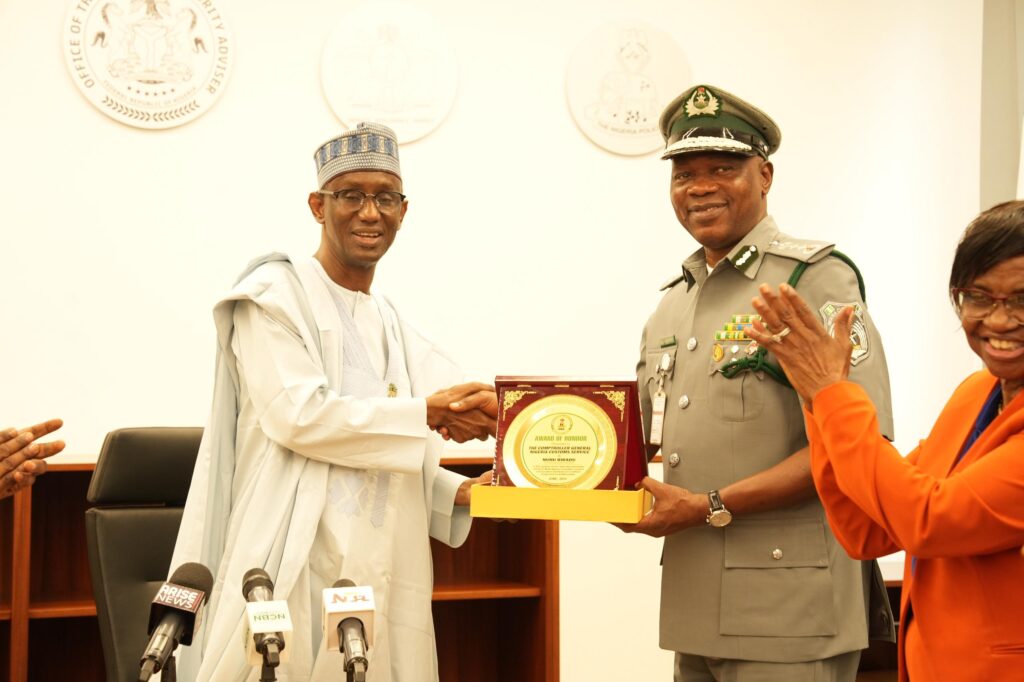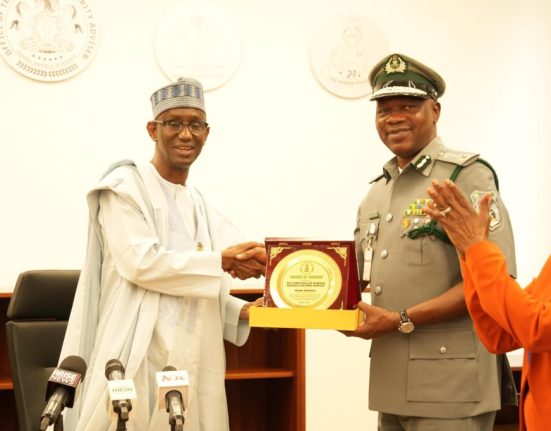In a show of federal solidarity and institutional collaboration, the National Security Adviser (NSA), Mallam Nuhu Ribadu, has lauded the Nigeria Customs Service (NCS), the National Agency for Food and Drug Administration and Control (NAFDAC), and the National Drug Law Enforcement Agency (NDLEA) for their united and intensified efforts in combating the influx and abuse of illicit drugs in Nigeria.
The NSA made the commendation during a high-level security and public health coordination meeting held in Abuja, where he acknowledged the growing threat of drug trafficking and abuse, not only as a public health crisis but as a national security issue linked to terrorism, armed banditry, and youth restiveness.
Ribadu noted that recent successful operations conducted by the trio of agencies have resulted in the seizure of tonnes of narcotics, the dismantling of smuggling syndicates, and the interception of fake pharmaceuticals at key border points and seaports.
“Our security framework now recognises the strategic importance of coordinated inter-agency action in dismantling the logistics chain of drug cartels. Customs, NAFDAC, and NDLEA have demonstrated that synergy, not silos, is the way forward,” Ribadu stated.
The NSA pointed to several recent operations at the Apapa and Tincan ports, where containerised shipments of tramadol and other psychotropic substances were intercepted through joint intelligence sharing and pre-clearance profiling. Similar successes were recorded at Murtala Muhammed International Airport and several inland checkpoints.
The Director-General of NAFDAC, Prof. Mojisola Adeyeye, reiterated the agency’s zero-tolerance for counterfeit and substandard drugs, adding that NAFDAC’s regulatory clampdown would continue to align with national security goals, especially under the Renewed Hope Agenda of President Bola Ahmed Tinubu.
Also speaking, the Chairman of NDLEA, Brig. Gen. Mohamed Buba Marwa (Rtd), said Nigeria must treat the drug scourge as a matter of national urgency, stressing that over 10 million Nigerians, particularly youths, are at risk due to narcotics consumption. He noted that collaborative efforts have led to the arrest of hundreds of traffickers, destruction of clandestine laboratories, and the rehabilitation of drug-dependent individuals.
From the Customs end, Acting Comptroller-General Bashir Adewale Adeniyi pledged continued vigilance across Nigeria’s borders and declared the service’s readiness to deepen digital surveillance and intelligence cooperation.
Security experts at the event described the tripartite alliance as a “template for effective multi-sectoral governance” in the fight against illicit drug trafficking. Stakeholders called for more investment in drug education, youth rehabilitation centres, and international collaboration.
As the global drug economy continues to adapt and innovate, Nigeria’s security architecture is equally evolving, with agencies realising that united action remains the most potent antidote to criminal networks

